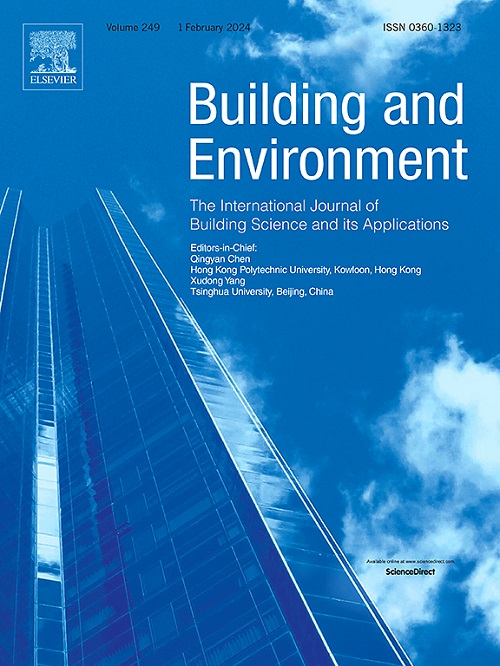教育建筑的能源效率:智能技术集成和居住者行为的系统回顾
IF 7.1
1区 工程技术
Q1 CONSTRUCTION & BUILDING TECHNOLOGY
引用次数: 0
摘要
居住者行为研究是建筑节能研究的重要组成部分。在建筑物中使用智能技术,特别是在入住期间,对能源消耗产生了重大影响。本研究旨在研究混合用途教育建筑中不同空间的能源消耗模式,并通过广泛的文献综述确定能源浪费的潜在来源。应用PRISMA协议定义关键术语并从数据库中提取所有相关论文。这篇综述的重点是2010年至2024年7月之间的出版物,收录在Web of Science数据库中,其中包括70篇精选论文。通过综合最新的研究,本综述为寻求实施智能技术的利益相关者和决策者提供了概述和实用指南。研究结果表明,在集成智能系统时,环境因素和个人因素呈正相关,两者都显著影响供暖能源的使用。在环境因素中,社会环境因素对能源消耗也有显著影响。这项研究强调了未来智能技术集成的机会,强调了它们在不同应用中的灵活性。研究结果有助于建立更可靠的评估标准来分析住户行为,作为教育部门综合能源政策框架的一部分。该研究还强调了广泛采用屋顶光伏板的重要性,这对于为工程设计提供信息、创建基于证据的基准、优化能源系统和指导政策决策至关重要,从而在英国教育部门实现净零能耗校园。本文章由计算机程序翻译,如有差异,请以英文原文为准。

Energy efficiency in educational buildings: A systematic review of smart technology integration and occupant behaviour
Research on occupant behaviour is a vital component of building energy-saving studies. The use of smart technologies in buildings, particularly during occupancy hours, has a substantial impact on energy consumption. This study aims to examine energy consumption patterns across various spaces in mixed-use educational buildings and identify potential sources of energy waste through an extensive literature review. The PRISMA protocol was applied to define key terms and extract all relevant papers from the database. The review focuses on publications from 2010 to July 2024, indexed in the Web of Science database, and includes 70 selected papers. By synthesizing state-of-the-art research, this review provides an overview and practical guidelines for stakeholders and decision-makers looking to implement smart technologies. The findings indicate that environmental factors and personal factors are positively correlated when integrating smart systems, with both significantly influencing heating energy use. Among environmental factors, social environmental factors were also found to have a significant impact on energy consumption. This study highlights opportunities for the future integration of smart technologies, emphasizing their flexibility across diverse applications. The findings contribute to establishing more reliable assessment criteria for analysing occupant behaviour as part of a comprehensive energy policy framework for the education sector. The study also underscores the importance of widespread adoption of rooftop photovoltaic panels, which are critical for informing engineering design, creating evidence-based benchmarks, optimizing energy systems, and guiding policy decisions to achieve net-zero energy campuses in the UK educational sector.
求助全文
通过发布文献求助,成功后即可免费获取论文全文。
去求助
来源期刊

Building and Environment
工程技术-工程:环境
CiteScore
12.50
自引率
23.00%
发文量
1130
审稿时长
27 days
期刊介绍:
Building and Environment, an international journal, is dedicated to publishing original research papers, comprehensive review articles, editorials, and short communications in the fields of building science, urban physics, and human interaction with the indoor and outdoor built environment. The journal emphasizes innovative technologies and knowledge verified through measurement and analysis. It covers environmental performance across various spatial scales, from cities and communities to buildings and systems, fostering collaborative, multi-disciplinary research with broader significance.
 求助内容:
求助内容: 应助结果提醒方式:
应助结果提醒方式:


